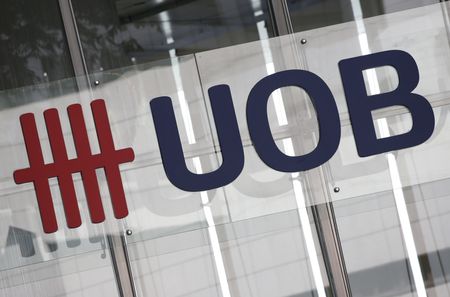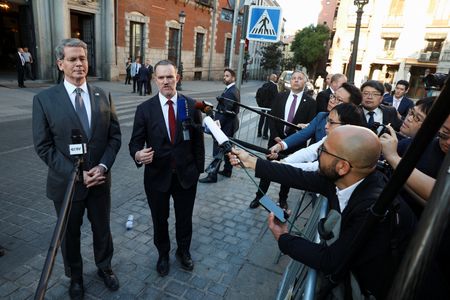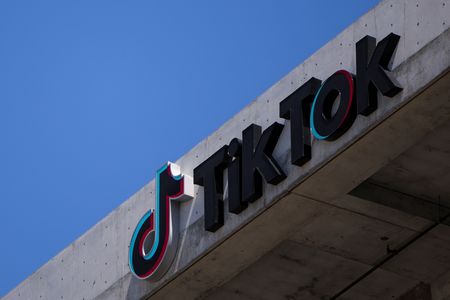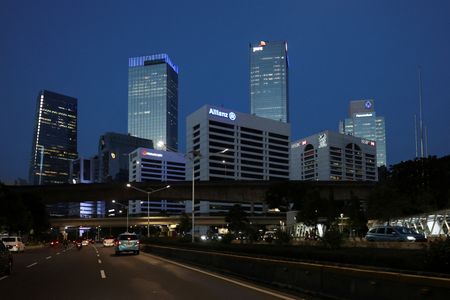By Yantoultra Ngui
SINGAPORE (Reuters) -Singapore’s United Overseas Bank, or UOB, will resume giving 2025 guidance when the impact of U.S. tariffs becomes clearer, it said on Wednesday after posting a stable first-quarter net profit that missed expectations.
“The world order has been disrupted by U.S. tariffs. While it is too early to quantify the exact impact, we expect growth to slow in the near term.” UOB Deputy Chairman and CEO Wee Ee Cheong said in a briefing, referring to the global outlook.
UOB shares dropped 1.6% Thursday morning, underperforming the domestic benchmark index’s 0.2% decline.
UOB, the first Singaporean lender to report this earnings season, follows other major global banks in highlighting the threat to economic growth from U.S. President Donald Trump’s tariffs.
HSBC, which reported results last week, forecast worsening loan demand and credit quality due to growing trade tensions.
Standard Chartered, whose first-quarter results on Friday beat expectations, warned that major deals could be put on hold if trade tensions persisted.
UOB, Southeast Asia’s third-largest bank by assets, reported S$1.49 billion ($1.16 billion) in net profit, unchanged from the year-ago quarter, supported by record fee income and robust loan growth. This was slightly below the mean estimate of around S$1.5 billion of two analysts polled by LSEG.
Although UOB’s 2025 guidance was suspended, CGS International’s analysts Tay Wee Kuang and Lim Siew Khee said they do not expect drastic revisions given the bank’s resilient operational performance in the first quarter.
UOB projected high single-digit loan growth, double-digit fee growth with credit costs at 25 to 30 basis points for 2025 during fourth quarter results.
Wee said the current uncertainties were not as bad as during the COVID-19 pandemic and the long-term fundamentals of the Association of Southeast Asian Nations remained attractive.
“We expect flows within ASEAN and between ASEAN and the rest of the world to continue growing as countries seek new ways to prosper,” he said.
Wee also highlighted other opportunities amid uncertainties, including growing client demand for hedging and a healthy pipeline of infrastructure financing.
First-quarter credit costs rose to 35 basis points as UOB set aside an additional pre-emptive allowance to boost coverage for potential loan losses due to growing macroeconomic uncertainties. This compares to 57 basis points during COVID-19, Wee added.
Larger rivals DBS Group and Oversea-Chinese Banking Corporation are scheduled to report results on May 8 and 9 respectively.
($1 = 1.2879 Singapore dollars)
(Reporting by Yantoultra Ngui; Editing by Christopher Cushing, Richard Chang and Saad Sayeed)











